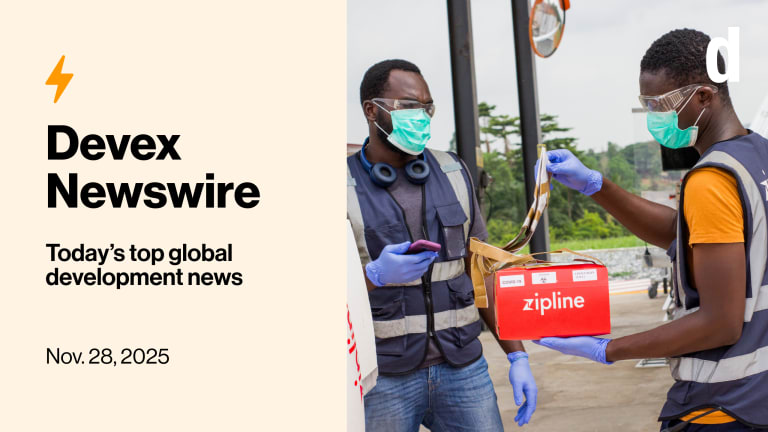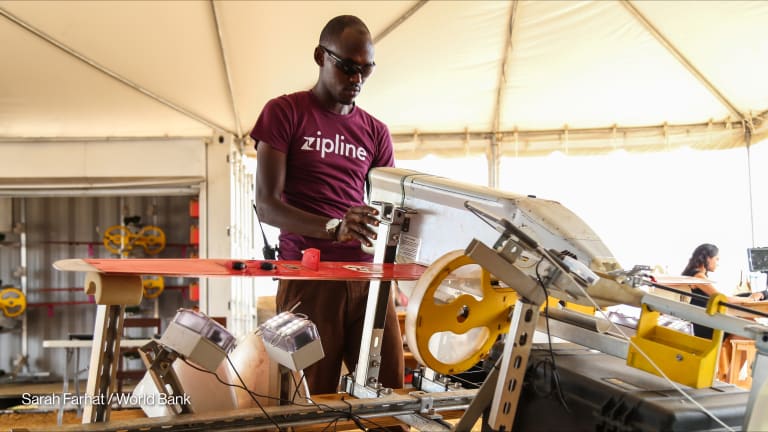
As societies continue to confront authoritarian regimes across the Middle East and North Africa causing violence and unrest, there are some international affairs and development experts suggesting that more autocratic political systems could put foreign aid to better use and actually advance socio-economic development. While still evolving in both theory and application, the idea is relatively simple – in light of the capitalist-led global economic meltdown, more top-down management and overall control of a developing economy, including the foreign assistance it receives, results in more efficiency and socio-economic development gains.
Any valid defense of this thesis usually begins with a discussion about Singapore. Indeed, most are well-aware of the Singapore success story – a once relatively obscure city-state rises to global socio-economic prominence under an ultra-disciplined government led by an authoritarian, yet benign, leader named Lee Kuan Yew. Now considered the key business hub for Southeast Asia with some of the highest living standards in the world, it should not be surprising that other countries are modeling themselves after Singapore.
Enter Rwanda, a country much better known for atrocity than progress, but which has begun to build a global reputation for reconciliation and sensible and increasingly effective development strategies, including its master strategy called Rwanda Vision 2020. Comparisons between Rwanda and Singapore were first pronounced by Rwanda’s recently re-elected and controversial President Paul Kagame to incite nationalism at home and provide his country some strategic direction. Kagame has been praised by many for his economic management and overall political resilience, but at the same time rebuked for oppressive policies that could at any time backfire and derail a fragile country trying desperately to overcome the horrors of genocide.
Some development experts say the fact the Rwanda is geographically tiny (roughly the same size as the State of Maryland), but densely populated make it an ideal place for testing new development approaches and their impacts. Today, approximately 60 percent of Rwanda’s 11.4 million people live below the poverty line, and about 40 percent of those are categorized as extremely poor, mostly in rural areas. Rwanda is deeply reliant on international aid which accounted for approximately 45 percent of government expenditure in 2010. The four largest foreign donors are the United States, World Bank, United Kingdom, and European Union.
Based on several official reviews, including the World Bank’s 2010 Public Expenditure and Financial Accountability assessment, Rwanda under Kagame has been cited for an “impressive and fast-improving public financial management system,” and overall more successful and focused program implementation. The secret, Devex sources in Rwanda say, is the country’s strong, country-led development strategy with key focus areas. Proponents of the country system concept say that it increases aid effectiveness and allows the countries themselves to guide and direct their own development. Skeptics point to the realities of the developing world, including government corruption, as well as a lack of transparency, capacity, and competency. Gradual moves toward country systems have confounded some development consultants and contractors who are forced to adapt their business development strategies.
Under Kagame’s authoritarian style of leadership, a majority of Rwanda aid money is funneled directly to the Rwanda government in the form of budget support and sector support. During the recently held Government of Rwanda and Development Partner’s Meeting, discussions focused on how development partners can fully channel external financing through country systems. According to the Rwanda government, all the official partners agreed to use Rwanda country systems, including treasury, reporting, procurement, and auditing, and 85 percent of all aid money will be spent through country systems by 2012. The World Bank has even chosen Rwanda as a pilot for country system use recognizing the country’s “advances in the area of public procurement.”
Rwanda’s dedication to its own systems, as well as the international donor community’s willingness to comply is also evident in an analysis of the U.K.‘s Department for International Development. DfID plans to donate 330 million pounds to Rwanda from 2011 to 2015, with most of the money destined specifically for health, education, and agriculture programs. Devex data reveals, however, that DfID has directly issued only two international tenders for Rwanda in the last five and a half years and none yet in 2011, signifying that procurements are being managed through country systems. DfID admits that budget support is likely to represent approximately 65 percent of the U.K.’s total engagement with Rwanda. A detailed look into the DfID engagement strategy also reveals that the agency will support only two government departments, namely the Office of the Auditor General and Parliament’s Public Accounts Committee.
Interestingly, at the same time Rwanda aid money will be channeled through its internal country systems, there still appears to be a need for internationally recruited and senior-level development practitioners. Indeed, only halfway through the year, Devex has recorded a surge in the number of higher-level development job openings from 139 total jobs posted in all of 2010; to 185 already posted in 2011 (see chart). In line with the publicized development strategies of both the Rwanda government and DfID, the majority of positions are focused in the health, education, and agriculture sectors.
Of course very real risks remain on the long and difficult path to becoming Singapore, particularly the need to attract significant amounts of foreign investment, the danger of slipping further into authoritarianism, and political and/or military adventurism into neighboring countries which would likely end up with donors cutting off aid flows. Still, foreign donors remain dedicated to Rwanda and Kagame has promised to alleviate his country’s dependence on foreign aid by promoting better tax collection, privatization, and investment. In 2009, Rwanda signed a contract with the energy and power company ContourGlobal to produce 100 megawatts of electricity from methane stored under Lake Kivu. Analysts contend that the $142 million extraction project, which was guaranteed through a World Bank loan, could meet Rwanda’s energy needs for the next 200 years. The same year, Rwanda completed construction of a $95 million fiber-optic telecommunications network across the country in an effort to attract foreign investment. Transparency International has cited Rwanda for being one of Africa’s least corrupt countries.








